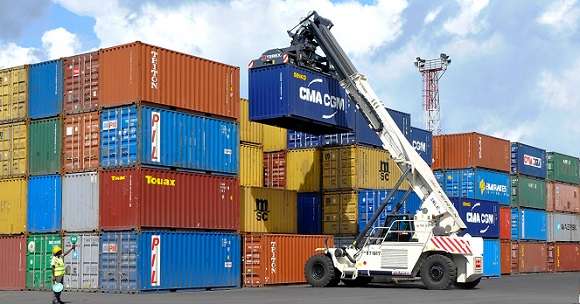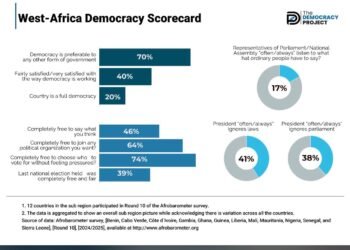In the intricate landscape of international trade, import duties stand as both a shield and a sword, protecting domestic industries while simultaneously shaping government revenues.
They act as a safeguard, shielding budding industries from the onslaught of cheaper foreign goods. By imposing tariffs on imports, the government creates a conducive environment for domestic producers, encouraging investment in key sectors and reducing reliance on external markets.
Moreover, import duties serve as a vital revenue stream for the government, funding essential social programs, infrastructure development, and economic initiatives crucial for national growth and prosperity.
For Ghana, a nation striving for economic growth and industrial development, import duties have long been a cornerstone of fiscal policy. However, recent developments suggest a tipping point where the delicate balance between protectionism and economic progress may be in jeopardy.
Under the framework of the ECOWAS Common External Tariffs, Ghana has implemented a sophisticated system of Five-Band Tax Rates, delineating import duties based on the nature and significance of goods.
This tax system applies different rates to various goods: essential social goods are tax-free (0%), basic necessities, raw materials, capital goods, and specific inputs have (5%), goods used in production (semi-finished goods) have (10%), finished goods for consumers have (20%), and specific goods for economic development have the highest rate (35%).
This tiered approach is aimed at incentivizing local production, curbing excessive dependency on imports, and bolstering domestic industries. On the surface, this strategy appears rational, aligning with Ghana’s broader economic objectives.
However, the devil lies in the details, and Ghana’s import duty regime seems to have veered into excess. Beyond the basic import duties, additional levies and fees are imposed, adding layers of complexity and cost to the importation process.
These ancillary charges include Value Added Tax, National Health Insurance Levy, Ghana Education Trust Fund, Import Excise Duty, Examination Fee, African Union Levy, ECOWAS Levy, Processing fee, Special Import Levy, Import Levy, Interest charge, and State Warehouse Rent.
Impact of Custom Levies on Business
Former President John Mahama spoke specifically about the importation of vehicles and the excessive taxes importers have to deal with in a meeting with members of the Ghana Union of Traders Association (GUTA) in Accra.
“[A friend brought] a car and I was just looking at the charges. This is a 2023 Lexus, these are the charges; 20% import duty, after that import VAT, then processing fees, then ECOWAS levy, then vehicle examination fee, then network charges, then network charge VAT, then network charge COVID.”
Former President John Mahama
These fees not only inflate the cost of imported goods but also create bureaucratic hurdles, impeding the efficiency of trade and hindering entrepreneurship.
Of particular concern is the impact of customs levies on businesses, especially small and medium enterprises (SMEs). These entities, often operating on razor-thin profit margins, bear the brunt of Ghana’s complex tax regime.
The high cost of importing goods, exacerbated by layers of taxes and fees, erodes their competitiveness in the market and stifles growth prospects.

Moreover, navigating the intricacies of Ghana’s customs system presents a significant barrier to entry for aspiring entrepreneurs, dampening innovation and hindering economic diversification.
The repercussions of excessive import duties extend beyond the business realm, permeating into the daily lives of Ghanaian citizens.
Higher import costs translate into increased prices for consumer goods, placing an added strain on household budgets, particularly for essential items. This regressive impact worsens inequalities and undermines efforts to improve living standards for all segments of society.
As such, while import duties play a crucial role in shaping economic policy and fostering domestic industries, Ghana’s current tax regime appears to have crossed the threshold into overreach.
The proliferation of customs levies, coupled with high tax rates, poses significant challenges for businesses and consumers alike. Striking a delicate balance between protectionism and economic growth is imperative, ensuring that import duties serve as a catalyst for development rather than a barrier to prosperity.
As Ghana charts its course in the global trade arena, recalibrating its approach to import duties will be essential in fostering sustainable and inclusive economic growth for the nation and its citizens.
READ ALSO: Power of Citizen Actions in Ghana’s 2024 Election























